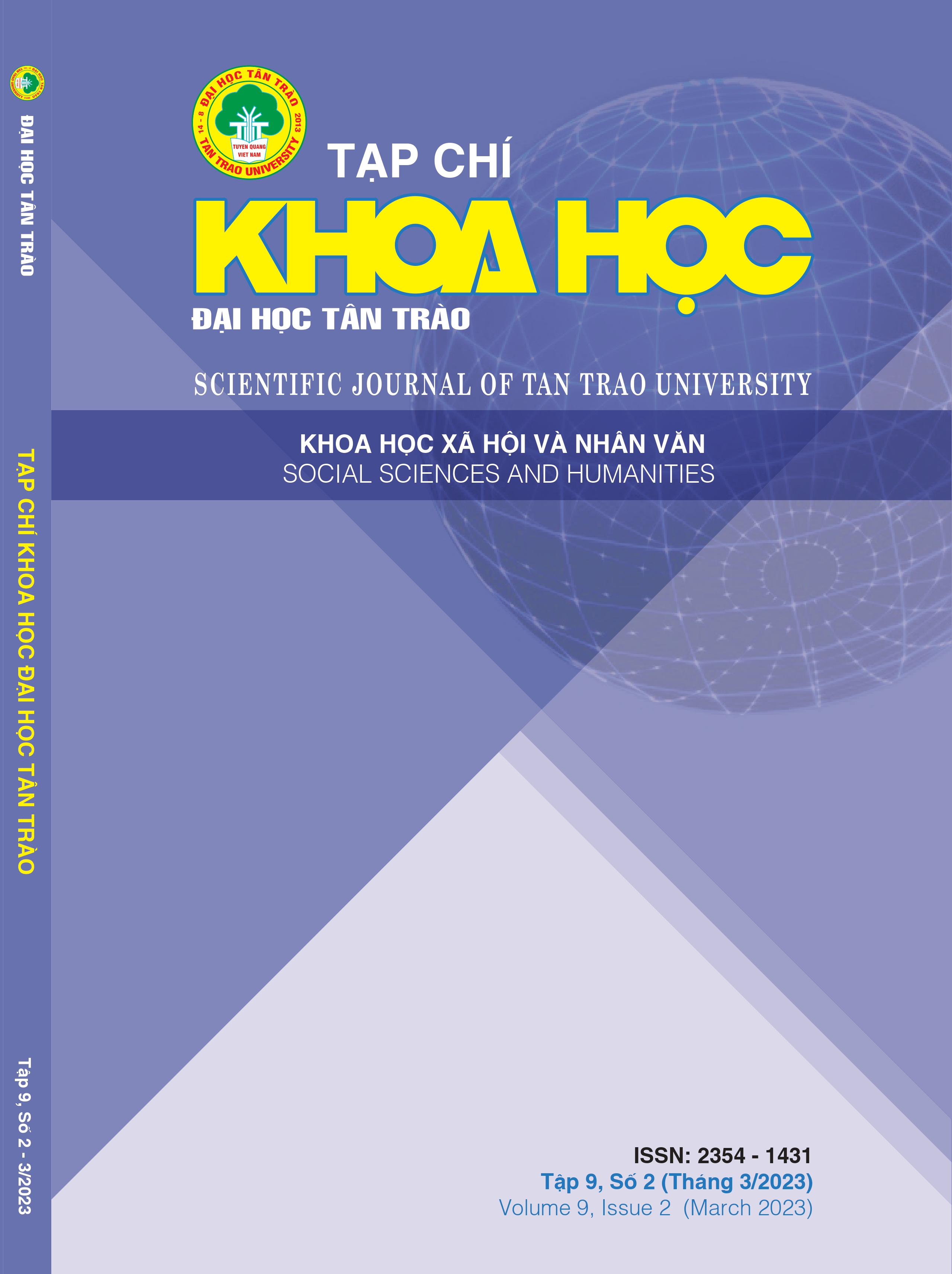USE CASE IN TEACHING GENERAL LAW SECTION AT TAN TRAO UNIVERSITY
DOI:
https://doi.org/10.51453/2354-1431/2023/980Keywords:
Using situations, teaching process, General Law module, legal issues, legal practice skills.Abstract
Using situations in teaching brings positive results to the teaching process. For the General Law module, using situations helps learners to directly approach legal issues. Thereby, helping the lecture become attractive thanks to its practicality, and at the same time training students' thinking ability and legal practice skills..
Downloads
References
/[1] Lam, N.H. (2004), Case study method. Fulbright Economics Teaching Program.
/[2] Bieu, T.V. (2010), Active teaching methods, Ho Chi Minh City University of Education.
/[3] Ngo, P.T. (2005). Teaching and teaching methods in schools. Publisher of Pedagogical University.
/[4] Hoa, T.V. (2010), Legal situations and methods of using cases in teaching Jurisprudence.
/[5] Tuyen, N.V. (director) (2009), Building and using legal situations in teaching Law, School-level scientific project (Hanoi Law University).
/[6] Oanh, H.T. (2018), Building and using legal situations in teaching to improve the quality of law training.
/ [7] Binh, L. Pyongyang (Experience) (2003), Research on the application of the case method in teaching subjects of the Faculty of Economic Law, School-level scientific project (Hanoi Law University).
Published
How to Cite
Issue
Section
License

This work is licensed under a Creative Commons Attribution-ShareAlike 4.0 International License.
All articles published in SJTTU are licensed under a Creative Commons Attribution-ShareAlike 4.0 International (CC BY-SA) license. This means anyone is free to copy, transform, or redistribute articles for any lawful purpose in any medium, provided they give appropriate attribution to the original author(s) and SJTTU, link to the license, indicate if changes were made, and redistribute any derivative work under the same license.
Copyright on articles is retained by the respective author(s), without restrictions. A non-exclusive license is granted to SJTTU to publish the article and identify itself as its original publisher, along with the commercial right to include the article in a hardcopy issue for sale to libraries and individuals.
Although the conditions of the CC BY-SA license don't apply to authors (as the copyright holder of your article, you have no restrictions on your rights), by submitting to SJTTU, authors recognize the rights of readers, and must grant any third party the right to use their article to the extent provided by the license.


